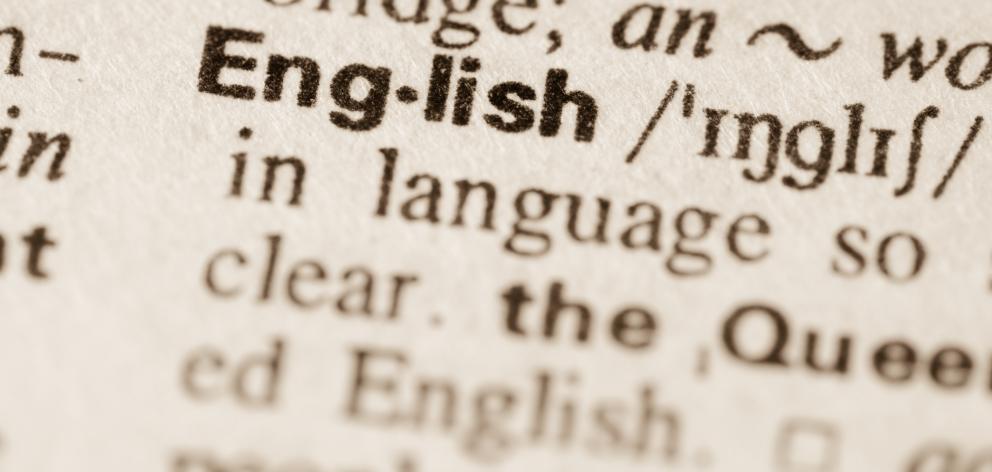

From time to time we get flurries of agitation in the letters column of newspapers about poor pronunciation and grammar. These are often directed at television personalities and commercials or our previous prime minister.
They also come from parents or grandparents complaining about how young people today are mangling the English language: shower with a "wa" at the end, lots of "likes" in a single sentence and "should of" instead of "should have".
Then there’s the misuse of words such as "literally" when "figuratively" is meant. A friend of mine told me recently that she had "literally died from laughing".
However, languages are always in change. If they aren’t, they’re dead. More accurately, we need to talk about ‘‘current correct’’ pronunciation, usage and spelling rather than "carved-in-stone correct".
In the past, these changes were more gradual and happened village by village or region by region and were generally generational. Today, change happens with speed and on a global scale assisted by social media, television and talkback radio presenters whose pronunciation and grammar could at times best be called "current" rather than traditional.
Probably few people speak in the manner of their grandparents. In fact, these days the speed of change means that even adult-speak is not constant. I’m sure the words I use and my pronunciation have changed considerably for better and for worse since I was a teenager, purely because of spoken influences around me. No doubt the sharp-eyed reader will also find examples of abuse of the English language in this very column.
While the saying, "good grammar costs you nothing but bad grammar could cost you a job" is possibly true, parents also have to decide just which battle is worth fighting and where to draw a line.
A good position to start from is that English that is spoken in a particular time and place and is understood in that time and place is therefore correct for that time and place. This would apply to all languages.
From here then, the best approach is to let your youngsters know that being understood is important and that there’s an appropriateness to the use of the language. The way you communicate with your friends at school will be different from the way you would be expected to speak to your parents and different again for clients of a business you might eventually work for.
If you take that approach, then "appropriate" rather than "correct" becomes easier to deal with. While you may want to correct some lazy pronunciation from time to time, don’t make a fetish of it and remember that the "misuse" of a particular word in teenage slang doesn’t last long and is soon replaced by another.
Comments
The main cause of variations in English pronunciation is its spelling.
Using 205 spellings for 44 sounds is bad enough (see EnglishSpellingProblems blog), but using dozens of them for more than one sound is insane (on – only, once, other; sound – soup, southern …). - With a mangled spelling system like that, there is no objective way of deciding which pronunciation is right or wrong.
Apart from being an unreliable guide to pronunciation, the irregularities of English spelling make learning to read and write exceptionally difficult. Anyone interested in improving literacy standards, should be calling for improvements to it.
Hitherto it has been repeatedly deliberately made worse rather than better, e.g. wrecking Chaucer’s regular spellings for the /ee/ and e sounds (seke, speke, shreke; frend, hed, thred) and making things even worse by adopting ea for both short /e/ and /ee/ (have read – will read).
The irregularities of our spelling do indeed make learning to read and write "exceptionally difficult". And someone is calling for improvements. The English Spelling Society is asking governments, educationists, business and anyone else interested to join it in seeking to set up an International English Spelling Congress to upgrade our spelling. www.spellingsociety.org











